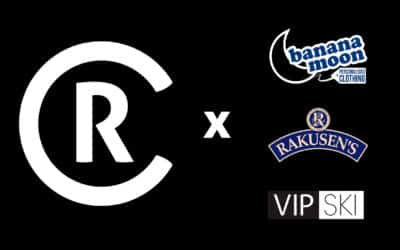Tim Donald, Executive Creative Director at integrated agency CreativeRace, gives his take on the buzzwords too often heard in the marketing and advertising sectors.
I’m going to talk a bit about dirty words, not your common dirty words like f*ck or b*llocks, but rather advertising industry specific filth.
If used in the right way, dirty words can be a glorious way of expressing yourself. As Stephen Fry once said, “The sort of twee person who thinks swearing is in any way a sign of a lack of education or a lack of verbal interest is just a f*cking lunatic.”. Similarly the words I’m going to talk about, when used in the right way, are pretty on the money in terms of explaining how good work should be.
But these words get used so much, and incorrectly, that they’ve lost their meaning. And you sound like a bit of an *add dirty word here* when you use them in meetings.
‘Disruptive’
We’ve all used this word. There’s no shame in it, as creative work should often aim to be disruptive but it’s deserving of the list. When people use this word there’s often not much thought about what is being disrupted and why -or even if said thing can be disrupted at all. Disruption in and of itself is pretty useless without some kind of intention or purpose. And I don’t consider just ‘getting attention’ as a purpose. Attention on its own is only as valuable as what you do with it. It’s a shame that this word has become something people say in pitches to make the work seem more exciting, as genuinely disruptive work with a purpose can be incredible.
‘Purpose’
I appreciate the irony, having just said you need a purpose. To clarify, purpose is incredibly important in anything that you do, but it’s what the word has come to mean that I have a problem with. There are a couple of meanings for the word ‘purpose’ – the reason why something is done and a person’s sense of resolve – but in my experience in advertising it’s almost always taken to mean a worthy cause i.e. for a brand to have a purpose it needs to be tackling a big world issue.
There are times when we should be encouraging brands to do this, but there are a lot of times when we shouldn’t. Like when a certain brown sugar water thought it could bring about social change with the help of a Kardashian.
Quite often brands are lacking the simpler meaning of purpose – the reason why they do what they do (or they just haven’t articulated it in a way that makes sense to their audience). Simon Sinek said “people don’t buy what you do; they buy why you do it. And what you do simply proves what you believe”. I definitely buy that.
‘Innovation’
I’ve been noticing this one pop up more and more and it’s a funny one, partly because I don’t think there is a universal understanding of what it means. At least what we mean in our industry. Again, it’s lack of context that’s letting this one down. Everyone wants to be innovative, don’t they?
In my experience this is often interpreted as something to do with tech and so inevitably the ideas tend to be AR filters, chatbots or people making cocktails with realtime motion tracked animations in the background (yes I have done that, and no I wouldn’t recommend it). Personally I think innovation is about much more than that, because really it just means ‘new’. A new way of doing something, saying something, or thinking about something can be just as innovative as anything involving AI. In any case, we should always be trying to do new things anyway, right?
‘Bold/Brave’
As creatives, being bold and brave is something that’s drummed into us from the very beginning of our careers. It’s the bold and brave work that wins awards, so that’s what you try to do.
There’s absolutely nothing wrong with that, but what does it actually mean? These are highly context-dependant words, because what’s brave for one person is absolute madness to another.
The truth is there is no universal indicator for what bold and brave actually means, because it has to be deeply rooted in the DNA of the brand you’re working with.
I’ve seen work that is trying so hard to be brave that it goes completely beyond what the brand could and should be doing, and totally backfires. The result is work that is completely out of character for the brand,is and is at best confusing and at worst pretty damaging. So, absolutely be brave and bold, but do so with a thorough understanding of the brand you work with, and who you’re talking to.
and finally…
‘Data’
This one is a slight anomaly as it’s not really a swear as such, but it’s a word that’s become a bit of a crutch as far as strategy goes. I’m willing to accept that this may be more of a personal problem that I have with it rather than a generally accepted thing, but it’s my blog and I can do what I like. The thing is that there can be an over-reliance on data when it comes to strategy, particularly when trying to better understand audiences. Only a handful of strategists I’ve worked with – the truly exceptional ones – have understood that it can only take you so far.
You can pull all the data you like from YouGov or GWI, but that has to be paired with a very deep understanding of culture – to recognise the cultural spaces in which people live and how they interact with it, and then understand how and where a brand can fit in authentically. There’s nothing more jarring than a brand shoehorning their way into a place where they don’t really fit.
This is by no means an exhaustive list, and I’m sure there are loads more dirty words that could be added to it, but if I was to try and summarise my little rant – use as many dirty words as you like, just do it responsibly and with intent. Or you might sounds like a ****.











